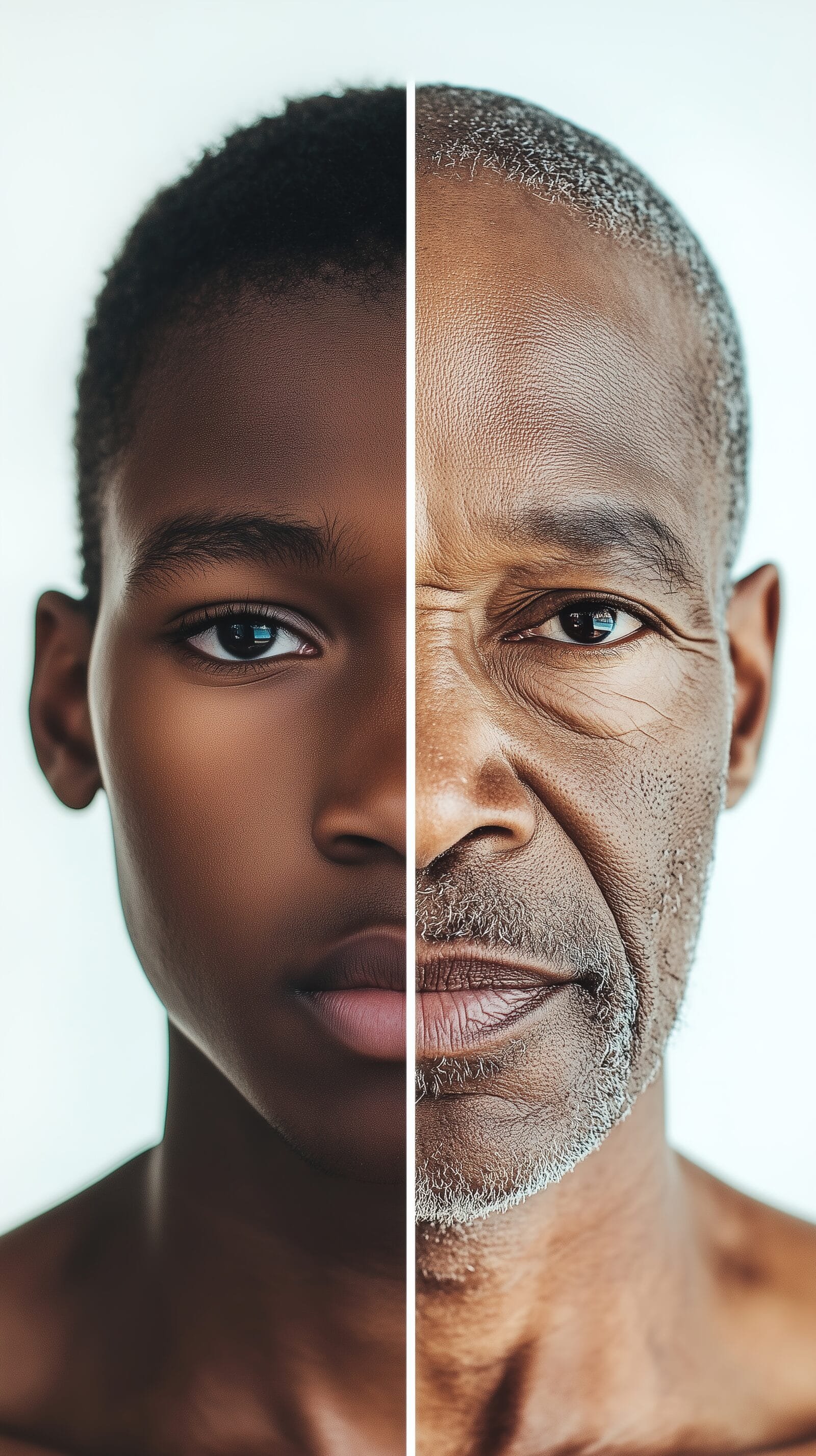
In a world driven by innovation and self-optimization, the quest for slow aging has become more than just a health trend— it’s a cultural phenomenon. Today’s generation is not merely looking to add years to life but life to years, redefining what it means to ‘age gracefully’. With advancements in biotechnology, a surge in wellness-focused lifestyles, and a growing fascination with the secrets of longevity, the idea of slowing down the aging process has moved from science fiction to science fact.
From biohacking— focused on small adjustments to diet, lifestyle, and supplementation for peak physical and mental performance— to personalized nutrition and ancient practices like mindfulness and herbal remedies, people are merging modern technology with age-old wisdom in their quest for vitality.
The real question is whether this self-indulgent generation can truly master aging or if they are merely postponing the inevitable. As quick fixes dominate their approach, the old adage, ‘An apple a day keeps the doctor away,’ seems to be evolving into, “A health hack a day keeps aging at bay.”
The pursuit of slowing down aging has long intrigued scientists, healthcare providers, and individuals alike. Modern advancements in science and medicine are beginning to uncover how one can influence the biological processes of aging, allowing people to live healthier, longer lives.
Slow aging goes beyond merely extending lifespan— it focuses on improving the quality of life by addressing age-related decline and disease. With the global population aging, the desire of people to adopt lifestyle changes, dietary adjustments, and cutting-edge technologies aimed at slowing down aging is stronger than ever.
With an abundance of information on slow aging, many confuse it with anti-aging. While slow aging focuses on delaying biological processes that lead to age-related decline— preserving cellular health, maintaining organ function, and supporting metabolic processes— anti-aging primarily addresses superficial signs like wrinkles. Slow aging aims to enhance the body’s functional longevity, keeping individuals active, mentally sharp, and resilient to diseases as they grow older.

Slow Aging and Health Decisions
Dietary Choices for Longevity
The best diet for longevity emphasizes a variety of nutrient-rich foods, including nuts, legumes, fruits, whole grains, and, most importantly, vegetables. These foods are packed with antioxidants, vitamins, and minerals essential for cellular health and DNA repair. Leafy greens, berries, nuts, and seeds, for example, combat oxidative stress— a major driver of cellular aging.
Health experts, however, caution against diets high in added sugar, saturated fats, and sodium, as these accelerate aging and undermine longevity efforts. Research also highlights the benefits of caloric restriction and intermittent fasting, which support cellular repair, reduce inflammation, and may extend lifespan.
Plant-based diets, such as the Mediterranean and Blue Zone diets, are linked to lower rates of cardiovascular disease, diabetes, and certain cancers— key age-related conditions. The Mediterranean diet focuses on fruits, vegetables, cereals, and extra-virgin olive oil, with limited red meat and saturated fats. The Blue Zone diet, similar but cleaner, minimizes fish, eggs, and dairy.
Both diets are rich in antioxidants, associated with reduced risks of chronic diseases like cancer and heart disease, making them exemplary models for promoting a long and healthy life. When clean eating has become the norm of the day, Mediterranean and Blue Zone diets have definitely taken center stage.
Exercise as Medicine
Physical activity is an effective way to slow down aging. It is believed that regular exercise reduces the risk of chronic diseases, enhances muscle and bone strength, and supports mental health. Activities like strength training, aerobic exercises, and flexibility routines are becoming essential components of preventive health strategies.
According to research, aerobic exercise, also known as endurance exercise, helps restore endothelial function, a key factor in reducing the risk of cardiovascular disease (CVD).
Chodzko-Zajko et al. specified that regular moderate-intensity dynamic exercise (≤70% VO2max or ≤80% maximum heart rate), primarily engaging the aerobic energy system and large muscle groups (e.g., brisk walking, cycling), helps mitigate age-related declines in cardiorespiratory fitness.
New research on functional fitness— an exercise approach that replicates everyday movements to enhance strength and agility— also highlights the importance of balance, coordination, and flexibility, especially for older adults to maintain mobility and independence.
Sleep and Stress Management
The term ‘beauty sleep’ is rightfully overused in the quest for youthfulness and slowing aging. However, quality sleep and effective stress management are crucial for cellular repair and hormone regulation, both key to the aging process.
Sleep supports memory consolidation and immune function, while stress-reduction practices like mindfulness and meditation help lower inflammation and promote mental well-being.
Programs focusing on sleep hygiene and mental health management are increasingly recognized as foundational for aging well, with digital health apps now integrating sleep tracking and mindfulness modules.
While individual sleep needs vary, most healthy adults require 7 to 9 hours of sleep per night. However, the quality of sleep matters more than the exact duration. Consistently waking up feeling unrested or experiencing daytime fatigue are clear signs that one is not getting enough sleep.
As the significance of sleep and mental wellness gains attention, modern medicine has shifted toward cleaner, more natural remedies. Increasingly, sleep aids and relaxants are being formulated with natural ingredients, promoting healthier living and supporting the process of slowing aging.
It goes without saying that quality sleep and good mental health, thus effective stress management, should be top priorities on anyone’s bucket list for healthy aging.
Supplements and Nutraceuticals
As we age, maintaining strong bones, a sharp mind, and a healthy heart becomes increasingly important. Supplements like Vitamin D, Omega-3 fatty acids, and antioxidants are widely used to support these essential areas. Vitamin D plays a critical role in bone health by reducing the risk of fractures and enhancing calcium absorption, while also contributing to a robust immune system.
Recent advancements in aging research have highlighted the potential of compounds like NAD+ precursors (e.g., NMN) and resveratrol. NAD+ (nicotinamide adenine dinucleotide) is essential for cellular energy production and repair. Its levels decline with age, but supplements may help restore mitochondrial function and promote cellular health.
Resveratrol, a natural compound found in grapes and berries, is thought to enhance longevity by activating certain pathways that protect cells from damage. Together, these compounds show promise in slowing cellular aging and improving overall vitality.
Aging is often accompanied by an accumulation of “senescent” cells— damaged cells that no longer divide but still release inflammatory substances, contributing to chronic inflammation and tissue damage. Senolytic compounds are an emerging area of research aimed at selectively removing these cells, potentially reducing inflammation and delaying age-related conditions.
By incorporating these supplements and exploring cutting-edge compounds, individuals can take proactive steps to support healthy aging at the cellular level.
Genomics and Personalized Medicine
The advancement of genomics has revolutionized the way the current generation approaches aging and health, offering individuals valuable insights into their genetic predispositions for age-related diseases such as Alzheimer’s, cardiovascular conditions, arthritis, and specific cancers.
By understanding their unique genetic makeup, individuals can make more informed, proactive health decisions that are tailored to their specific risks. This personalized approach helps to identify potential health issues before they manifest, allowing for early interventions that could significantly reduce the impact of these conditions as they age.
This, complemented by the rise of personalized medicine, is transforming healthcare by offering targeted interventions based on molecular insights. Through advanced genetic testing, healthcare providers can now recommend customized strategies that align with a person’s specific genetic profile.
This includes the common practices of personalized dietary plans, lifestyle modifications, and pharmacological treatments designed to address individual health risks more effectively. By tailoring interventions to a person’s genetic and molecular makeup, personalized medicine enhances the precision and effectiveness of treatment, ultimately supporting healthier aging and improved quality of life.
Technology and Aging Well
Wearable devices now provide continuous monitoring of vital signs, sleep patterns, and physical activity, allowing for real-time feedback that helps individuals make timely lifestyle adjustments. These devices enable early detection of health issues, empowering users to take proactive steps toward better well-being.
The current generation has easy access to basic personal health information with just a smartphone or smartwatch. With these available, this generation is almost living a ‘smart life’.
Telemedicine has also made healthcare more accessible, especially for older adults, by allowing remote consultations with healthcare professionals. This convenience helps individuals manage chronic conditions, receive preventative care, and stay connected with their providers without the need to travel, improving overall health outcomes and care accessibility.
Challenges in Adopting Slow Aging Practices
While slow aging practices hold promise, several challenges hinder their widespread adoption.
One of the primary barriers is accessibility and cost. Many interventions aimed at promoting slower aging, such as personalized medicine, advanced supplements, and high-tech wearables, are expensive and may not be accessible to everyone. This creates a gap, where only those with the financial means can benefit from these cutting-edge practices.
Another significant challenge is the lack of long-term research. Although there is encouraging data on some slow-aging practices, many are still in the early stages of research. Long-term studies are crucial to fully understand the effectiveness and safety of these interventions, as their impact may not be clear until years of data are available.
Additionally, the slow-aging industry has seen an overabundance of products and misinformation. The market is flooded with supplements, treatments, and products that claim to slow aging, making it difficult for individuals to distinguish between genuinely effective solutions and passing trends. In today’s information age, with an abundance of available data, it can be overwhelming to navigate the options and make informed decisions about which practices are truly beneficial for healthy aging. Caution is strongly advised, as what begins as a quest for longevity could inadvertently turn into one for a shorter lifespan.
The Future of Slow Aging
The focus on slow aging is likely to continue influencing healthcare innovations, particularly in preventative care and personalized health solutions. As research advances, the integration of genomics, biotechnology, and wearable technology could make slow-aging strategies more precise and accessible. Additionally, government policies may increasingly recognize the value of preventive care, potentially making some interventions more affordable and widespread.
Slow aging is changing the way people approach health and longevity. By focusing on a balanced diet, regular exercise, mental well-being, and preventive care, individuals can greatly enhance their quality of life as they age. Despite challenges like accessibility and the need for more long-term research, the growing emphasis on slow aging reflects a broader societal shift: the goal is not just to live longer, but to live better.


